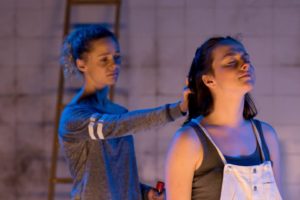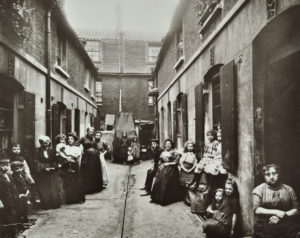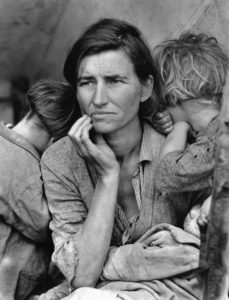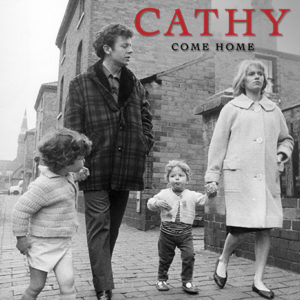 (4 / 5)
(4 / 5)
“We can’t escape who we are”
‘Bird’s popularity is simply soaring at the moment. As it approaches the end of its successful run in the Sherman, I (fashionably late as always), rocked up to the Sherman on Thursday night to finally see what the fuss was all about. The play, written by Katherine Chandler and directed by Rachel O’Riordan, focuses on two girls (Ava played by Georgina Henshaw and Tash played by Rosie Sheey) living in a care home facility finding their way in a world which has so far been cruel to them. They are on the cusp of something and we feel it intensely – but what?
The opening scenes between Ava and her Mother (played by Siwan Thomas) are awkward, desperate and heart-breaking to watch, setting the scene for the play. A raw, nervy and tense romp through the concepts of family, motherhood, friendship, coercion and control. The story of the play is depressingly commonplace (for those who have ever worked in/been associated with social care) Georgia Henshaw’s performance as Ava is simply spellbinding to watch as she squirms, paces and darts around frantically on stage. The girls, bound by tragedy and victims of terrible circumstance, are headed towards something they do not even understand themselves. Who will love these girls and who will look after them? Dare they even dream that there could be another life, another fate for them?
The play flitters between moments of light laughter and innocence, the joy of the affections the girls have for each other and the murky, intimidating relationships closing in on Ava and Tash. There are some difficult scenes and parallels echoing tragedies in recent years in Glasgow and Rochdale. There are moments in the play where your heartbreak for Ava’s and her (perhaps) inevitable fate will punch you in the gut.
“We can’t escape who we are” (Tash)
The play seems timely with recent reports suggesting that children in care homes are over-represented in the criminal justice system and criminalised over minor incidents.
‘Children in care should not be prosecuted for minor offences, a report looking at their over-representation in the criminal justice system says. The review for the Prison Reform Trust calls on the government to draw up new procedures to protect these children from criminalisation.’
http://www.bbc.co.uk/news/education-36342621
http://www.prisonreformtrust.org.uk/Portals/0/Documents/In%20care%20out%20of%20trouble%20summary.pdf
There has been an increasing focus on plays like Bird acting as a form of ‘cultural tourism’ or ‘poverty porn’. We’re saturated with so-called poverty porn in wider popular culture. In recent times, television shows like Benefit Street, Shameless and even the Jeremy Kyle show sensationalise and feed in to the wider dominant narrative around the deserving poor vs. underserving poor. Our tolerance and understanding of these central characters often depends on the characterisation of the subjects/case studies within the production: are they even trying to change? Are they worthy? Are they a lost cause? Damaged goods? Could they ever be ‘useful citizens’, whatever that means. Are theatre productions like Bird, Boy (Almedia Theatre, London) and Re:Home (The Yard, London) recreating a similar kind of ‘human zoo’ that we see so often on the TV?
Depicting poverty in popular culture can have positive consequences on our understanding on social class and real poverty. The appalling slums and workhouses depicted in Dickens’ novels serve as a form of social commentary of life in Britain during rapid industrialisation and urban growth.
“In the little world in which children have their existence, whosoever brings them up, there is nothing so finely perceived and so finely felt, as injustice.” Charles Dickens
Slum housing in Providence Place, London, 1909. Copyright: © London Metropolitan Archives
Stateside, documentary photographer Dorothea Lange’s photograph of a desperate and hungry mother during the Great depression would propel the Government in to action to aid migrant labourers and their families.
Migrant Mother Dorothea Lange
In 1960s Britain, we were rocked by Ken Loach’s drama documentary ‘Cathy Come Home’, which exposed the harsh realities of homelessness and unemployment. (Loach continues to focus on this themes with his film ‘I, Daniel Blake’ recently winning the Palme d’Or at Cannes. ) ‘Cathy Come Home’ caused outrage, prompting a debate in Parliament and leading to the establishment of the charity ‘Crisis’. It is a great example of how culture can influence the political agenda and is widely recognised as one of the greatest drama documentaries ever made.
Theatre like Bird can challenge us and take us out of our comfort zone Are we actually mobilised and ready for any sort of real change in ‘Austerity Britain?’ and does the play actually inspire you to do anything with your emotional investment in the characters? Are we now too apathetic to be shocked in to action? It is surprising that in the play it is Lee who highlights how disconnected Ava – and we – are with the wider world. “Human contact – it’s important.” Yet as he tells Ava, we are too busy looking at our phones to connect (face-to-face) with one another and have difficult conversations. Are we also too busy being manipulated that we are now more focussed on debating over who ‘deserves’ our help and feathering our own nests?
Theatre can and should be a vehicle for social change, just like a well-made viral video or popular cause campaign. Plays like Bird can shine a light on the problem. Could more be done to help audiences think about solutions? Could charities and outreach organisations capitalise on these engaged audiences? In much the same way as the creation of the charity ‘Crisis’ was born from ‘Cathy Come Home’ Like so many of those who’ve been coming to see Bird and emerging from the theatre positive, pumped and ready to make change in society, charities may well be in a prime position to help. A text donation, a volunteering opportunity – anything! That’s something I’d like to see take off…
Drama
Bird
Sherman theatre
May 26th
By Katherine Chandler
Director Rachel O’Riordan
Designer Kenny Miller
Lighting Designer Kevin Treacy
Composer and Sound Designer Simon Slater
Assistant Director Elgan Rhys
Casting Director Sophie Parrott CDG
Cast
Ava – Georgia Henshaw
Claire – Siwan Morris
Dan – Connor Allen
Lee – Guy Rhys
Tash – Rosie Sheehy
Running time: 1hr 20 mins.




